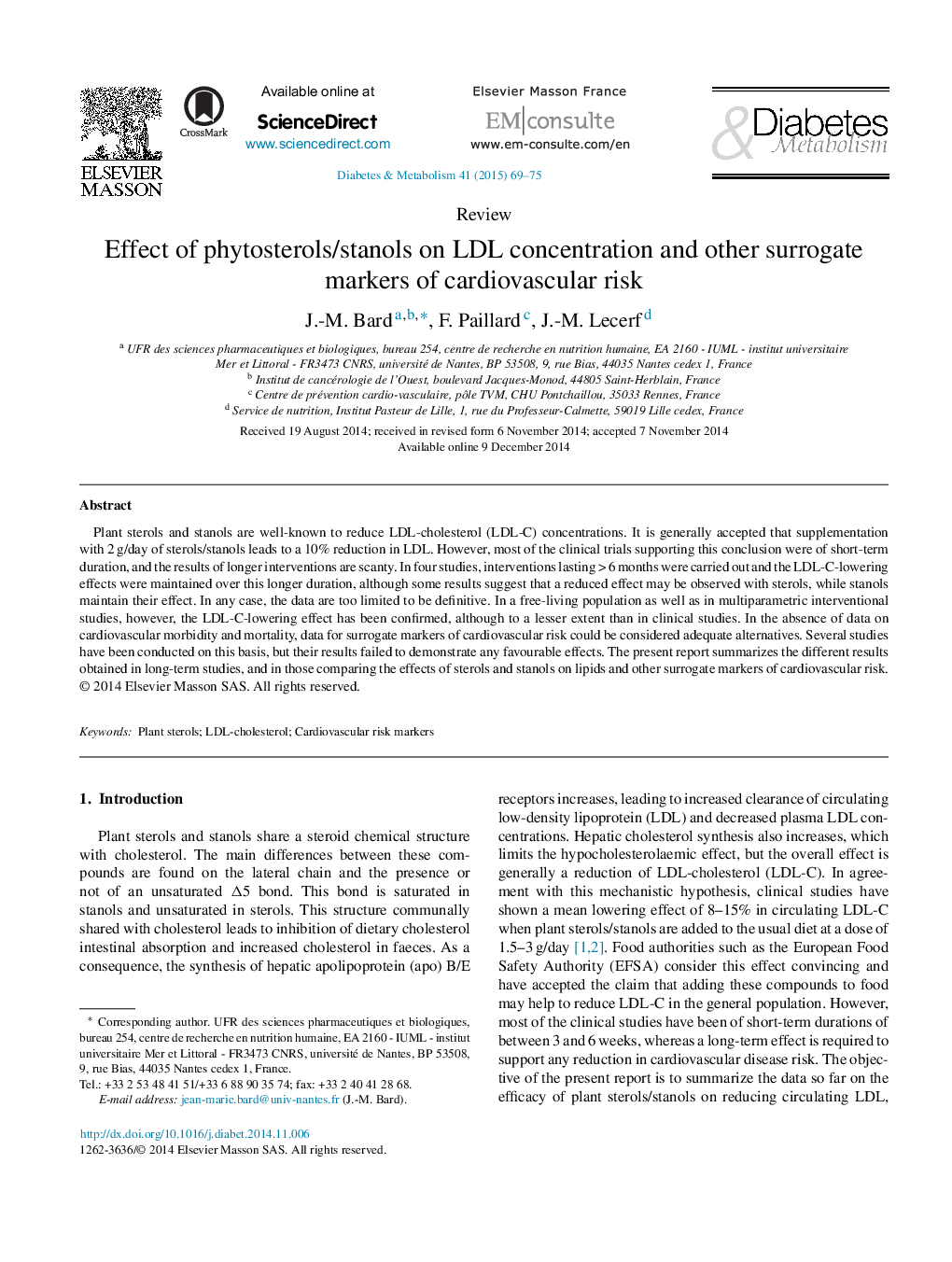| Article ID | Journal | Published Year | Pages | File Type |
|---|---|---|---|---|
| 3259075 | Diabetes & Metabolism | 2015 | 7 Pages |
Plant sterols and stanols are well-known to reduce LDL-cholesterol (LDL-C) concentrations. It is generally accepted that supplementation with 2 g/day of sterols/stanols leads to a 10% reduction in LDL. However, most of the clinical trials supporting this conclusion were of short-term duration, and the results of longer interventions are scanty. In four studies, interventions lasting > 6 months were carried out and the LDL-C-lowering effects were maintained over this longer duration, although some results suggest that a reduced effect may be observed with sterols, while stanols maintain their effect. In any case, the data are too limited to be definitive. In a free-living population as well as in multiparametric interventional studies, however, the LDL-C-lowering effect has been confirmed, although to a lesser extent than in clinical studies. In the absence of data on cardiovascular morbidity and mortality, data for surrogate markers of cardiovascular risk could be considered adequate alternatives. Several studies have been conducted on this basis, but their results failed to demonstrate any favourable effects. The present report summarizes the different results obtained in long-term studies, and in those comparing the effects of sterols and stanols on lipids and other surrogate markers of cardiovascular risk.
